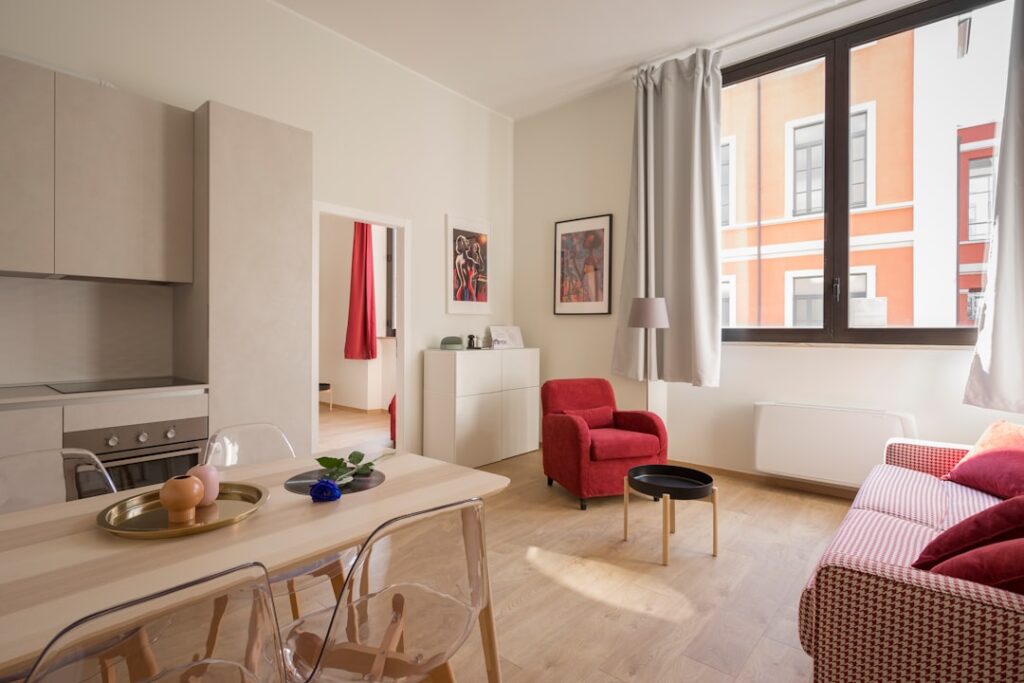The Dubai property market is a dynamic and multifaceted landscape that has garnered significant attention from investors and expatriates alike. Over the past two decades, Dubai has transformed from a modest trading port into a global metropolis, characterized by its iconic skyline, luxurious lifestyle, and diverse population. The real estate sector has played a pivotal role in this transformation, with a plethora of residential, commercial, and mixed-use developments emerging across the emirate.
The market is influenced by various factors, including economic conditions, government policies, and demographic trends, making it essential for potential buyers and investors to stay informed about the latest developments. One of the defining features of the Dubai property market is its resilience. Despite global economic fluctuations, the market has shown a remarkable ability to rebound and adapt.
For instance, after the 2008 financial crisis, property prices experienced a significant downturn; however, the market gradually recovered, driven by a resurgence in tourism, business activity, and foreign investment. The introduction of various initiatives by the Dubai government, such as long-term residency visas and 100% foreign ownership in certain sectors, has further stimulated interest in real estate. As a result, understanding the nuances of this market is crucial for anyone looking to invest or reside in Dubai.
Key Takeaways
- Dubai property market is dynamic and offers a wide range of options for expats
- Expats need to be aware of legalities and regulations when buying or renting property in Dubai
- Buying property in Dubai offers long-term investment benefits, while renting provides flexibility
- Popular areas for expats in Dubai include Dubai Marina, Downtown Dubai, and Jumeirah Lake Towers
- Expats can explore financing and mortgage options through local and international banks for property purchase
Legalities and Regulations for Expats
Navigating the legal landscape of the Dubai property market can be complex for expatriates. The United Arab Emirates (UAE) has established a framework of laws and regulations governing property ownership, leasing, and transactions. One of the most significant aspects for expats is the distinction between freehold and leasehold properties.
Freehold properties allow foreign nationals to own land outright in designated areas, while leasehold properties grant ownership for a specified period, typically up to 99 years. Understanding these distinctions is vital for expats considering their options in the market. Additionally, expatriates must be aware of the legal requirements involved in purchasing property in Dubai.
The process typically involves several steps, including obtaining a No Objection Certificate (NOC) from the developer, signing a Memorandum of Understanding (MOU), and registering the property with the Dubai Land Department. It is also essential for expats to engage with reputable real estate agents and legal advisors who can provide guidance on compliance with local laws and regulations. This ensures that all transactions are conducted transparently and legally, minimizing potential risks associated with property investments.
Buying vs Renting Property in Dubai
When considering a residence in Dubai, expatriates often face the dilemma of whether to buy or rent property. Each option presents its own set of advantages and challenges that must be carefully weighed against personal circumstances and long-term goals. Buying property can be an attractive option for those planning to stay in Dubai for an extended period.
Ownership not only provides stability but also allows individuals to build equity over time. Furthermore, property ownership can serve as a hedge against inflation, particularly in a market like Dubai where rental prices can fluctuate significantly. On the other hand, renting offers flexibility that can be appealing to many expatriates.
The transient nature of many expat lifestyles means that individuals may prefer to rent rather than commit to a long-term investment. Renting allows for easier relocation should job opportunities arise elsewhere or personal circumstances change. Additionally, renting typically requires less upfront capital compared to purchasing property, making it a more accessible option for those who may not have substantial savings or who are uncertain about their long-term plans in Dubai.
Ultimately, the decision between buying and renting hinges on individual preferences, financial situations, and lifestyle considerations.
Popular Areas for Expats in Dubai
Dubai boasts a variety of neighborhoods that cater to expatriates from diverse backgrounds, each offering unique amenities and lifestyles. One of the most sought-after areas is Dubai Marina, known for its stunning waterfront views and vibrant atmosphere. This area features an array of high-rise apartments, luxury hotels, and an extensive promenade lined with restaurants and cafes.
The proximity to the beach and recreational facilities makes it particularly appealing to young professionals and families alike. Another popular area among expats is Jumeirah Lake Towers (JLT), which offers a mix of residential and commercial properties surrounded by picturesque lakes and parks. JLT is well-connected to public transportation and provides a range of dining and shopping options.
For those seeking a more family-oriented environment, communities like Arabian Ranches and Jumeirah Village Circle (JVC) offer spacious villas and townhouses with access to schools, parks, and community centers. These neighborhoods are designed with families in mind, providing a sense of community while still being within reach of Dubai’s bustling city life.
Financing and Mortgages for Expats
Financing options for expatriates looking to purchase property in Dubai have evolved significantly over recent years. While cash purchases remain common among investors, many expats opt for mortgages to facilitate their property acquisitions. Several banks and financial institutions in the UAE offer mortgage products tailored specifically for expatriates.
These mortgages typically require a down payment ranging from 20% to 25% of the property’s value, depending on factors such as the buyer’s residency status and credit history. It is essential for expats to conduct thorough research when selecting a mortgage provider. Different banks may offer varying interest rates, terms, and conditions that can significantly impact the overall cost of borrowing.
Additionally, expatriates should be prepared to provide documentation such as proof of income, employment verification, and credit history when applying for a mortgage. Engaging with mortgage brokers who specialize in expat financing can also streamline the process by providing access to multiple lenders and helping navigate the complexities of securing a mortgage in Dubai.
Property Management and Maintenance
For expatriates who own rental properties or are considering investing in real estate in Dubai, understanding property management is crucial. Effective property management ensures that investments are well-maintained and generate consistent rental income. Many expats choose to hire professional property management companies that specialize in managing residential properties on behalf of owners.
These companies handle various tasks such as tenant screening, rent collection, maintenance coordination, and legal compliance. In addition to hiring professional services, property owners should also familiarize themselves with local maintenance regulations and standards. Regular maintenance is essential not only for preserving property value but also for ensuring tenant satisfaction.
This includes routine inspections, timely repairs, and adherence to safety regulations set forth by local authorities. By prioritizing effective property management practices, expatriate owners can maximize their investment returns while minimizing potential headaches associated with property ownership.
Tips for Negotiating Property Deals in Dubai
Negotiating property deals in Dubai requires a strategic approach that takes into account market conditions, individual needs, and cultural nuances. One effective strategy is to conduct thorough research on comparable properties in the area before entering negotiations. Understanding current market trends can provide valuable insights into pricing dynamics and help buyers make informed offers.
Additionally, being aware of any upcoming developments or changes in the neighborhood can strengthen one’s negotiating position. Building rapport with sellers or landlords can also play a significant role in successful negotiations. Establishing a positive relationship can lead to more favorable terms or concessions during discussions.
It is advisable for expatriates to remain flexible during negotiations while clearly articulating their needs and expectations. This balance between assertiveness and adaptability can facilitate smoother negotiations and ultimately lead to mutually beneficial agreements.
Cultural Considerations for Expats in Dubai
Living in Dubai as an expatriate involves navigating a rich tapestry of cultural diversity that reflects the emirate’s cosmopolitan nature. Understanding local customs and traditions is essential for fostering positive relationships with neighbors, colleagues, and service providers. For instance, it is important to respect Islamic customs during Ramadan by refraining from eating or drinking in public during daylight hours.
Such gestures demonstrate cultural sensitivity and can enhance social interactions within the community. Moreover, language can be both a barrier and a bridge in Dubai’s multicultural environment. While English is widely spoken across various sectors, learning basic Arabic phrases can go a long way in building rapport with locals.
Simple greetings or expressions of gratitude can create goodwill and foster connections within the community. Additionally, participating in local events or cultural festivals can provide expatriates with deeper insights into Emirati culture while allowing them to engage with their neighbors on a more personal level. In conclusion, understanding the intricacies of living in Dubai as an expatriate involves navigating various aspects of the property market while being mindful of cultural considerations.
From legalities surrounding property ownership to negotiating deals effectively, each element plays a crucial role in ensuring a successful transition into this vibrant city. By embracing both the opportunities and challenges presented by life in Dubai, expatriates can create fulfilling experiences while contributing to the rich tapestry of this global metropolis.
If you are an expat looking to buy property in Dubai, you may want to check out this informative article on steps to buy property in Dubai. This guide will provide you with all the necessary information and tips to navigate the real estate market in Dubai. Additionally, if you are considering selling your property in Dubai, you can refer to this article on everything you need to know about selling property in Dubai. And if you are looking for short-term rental properties in Dubai, you can explore this article on short-term rental properties in Dubai. These resources will help you make informed decisions when it comes to investing in Dubai’s property market.
FAQs
What is the process for expats to buy property in Dubai?
Expats can buy property in Dubai by obtaining a residence visa, finding a property, and then completing the purchase process through a developer or a real estate agent.
Are there any restrictions for expats buying property in Dubai?
Expats can buy property in designated areas of Dubai, which are typically freehold areas. They are not allowed to buy property in certain restricted areas.
What are the costs associated with buying property in Dubai as an expat?
Expats can expect to pay for the property price, agent fees, registration fees, and other associated costs such as maintenance fees and service charges.
Can expats rent out their property in Dubai?
Yes, expats can rent out their property in Dubai. However, they must obtain a rental license from the Dubai Land Department and adhere to the regulations set by the Real Estate Regulatory Agency.
What are the benefits of buying property in Dubai for expats?
Some benefits of buying property in Dubai for expats include the potential for high rental yields, tax-free rental income, and the opportunity to obtain residency through property ownership.




